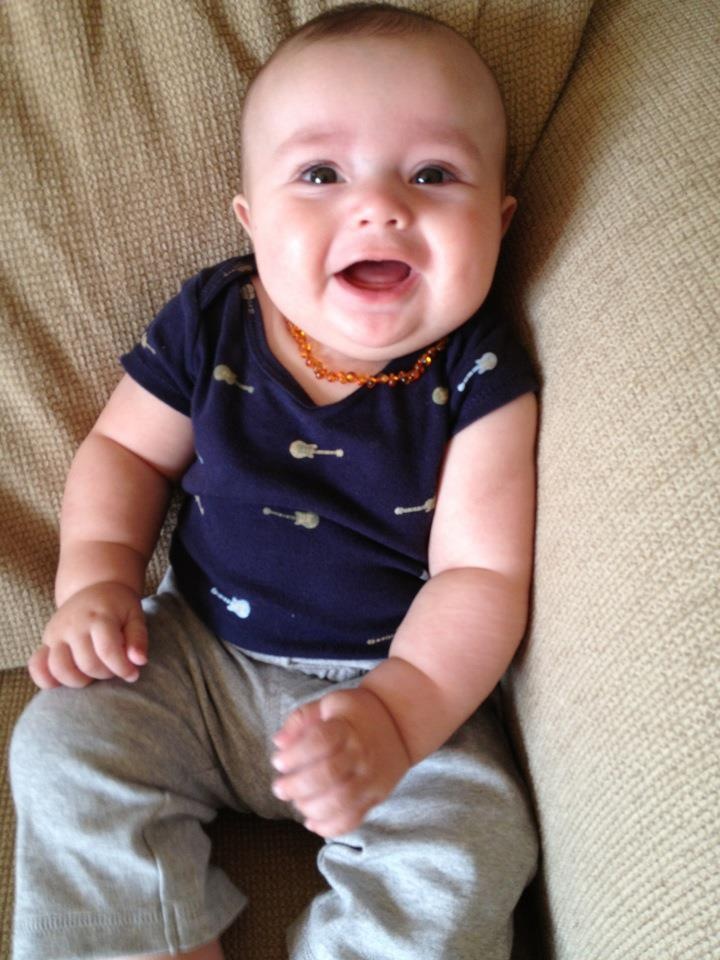Today, thanks to the recently enacted Newborn Screenings in most areas, the potential dangers associated with Clinical Hypothyroidism are often prepared for ahead of time, because families find out at birth if a child has this genetic condition.
Hypothyroidism, or a deficiency in the secretion of the thyroid hormones, thyroxine (T4) and triiodothyronine (T3), by the thyroid gland may be difficult to recognize, but usually is very easy to treat. During childhood and adolescence the hypothyroid patient presents either with an enlarged thyroid gland, also known as a goiter, or diminution in the rate of growth in height. At the time of birth the symptoms and signs of hypothyroidism are minimal or absent, and the lack of adequate thyroid hormone from birth until approximately age 2 years is associated with varying degrees of permanent mental retardation. For these reasons most countries in the western world and every state in the United States routinely perform screening tests within the first week of life to detect congenital hypothyroidism so that prompt treatment can be initiated to prevent mental retardation
Causes
 Hypothyroidism usually is caused by an abnormality of the immune system that results in damage and destruction of the thyroid gland. This process results either in loss of thyroid tissue or an enlargement of the thyroid. The gland has the shape of a bow tie or butterfly, and is located just below the larynx, or "Adams Apple", and in front of the trachea, or windpipe. In most instances there is no pain or tenderness associated with thyroid diseases, although patients occasionally complain of difficulty in swallowing as if there were a lump in their throat.
Hypothyroidism usually is caused by an abnormality of the immune system that results in damage and destruction of the thyroid gland. This process results either in loss of thyroid tissue or an enlargement of the thyroid. The gland has the shape of a bow tie or butterfly, and is located just below the larynx, or "Adams Apple", and in front of the trachea, or windpipe. In most instances there is no pain or tenderness associated with thyroid diseases, although patients occasionally complain of difficulty in swallowing as if there were a lump in their throat.
Hypothyroidism may be caused by a failure of the pituitary gland to secrete thyroid stimulating hormone, or TSH. This hormone is essential for stimulating the thyroid gland to make T4 and T3 in normal amounts. TSH may be deficient for several reasons:
-
The pituitary gland is diseased, a rare cause
-
The area above the pituitary, called the hypothalamus, that is necessary to stimulate the pituitary, is diseased
-
There is a tumor, cyst or other abnormal structure between the hypothalamus and pituitary gland that prevents the pituitary from receiving its stimulus to secrete TSH.
Usually patients with TSH deficiency also have deficient secretion of growth hormone, and may have deficient secretion of the gonadotropins, called LH and FSH, which stimulate puberty and reproduction, and ACTH, which is necessary for cortisol and hydrocortisone secretion by the adrenal gland.
Symptoms
 Often the only sign of hypothyroidism during childhood is an abnormal rate of linear growth. Actually the child may not be short compared to other children of the same age if he or she were above average in height before the disease occurred. Therefore, the most important feature of hypothyroidism is a decrease in the rate or velocity of growth in height. If the disease is recognized early and adequately treated, the child will grow at an accelerated rate until reaching the same growth percentile where the child measured prior to the onset of hypothyroidism. Hypothyroidism progresses very slowly and insidiously, making the diagnosis difficult for physicians. In the more advanced and long-standing the child may have other general symptoms of hypothyroidism, such as easy fatigability, mild weight gain in association with a reduction in appetite, constipation, an intolerance of cold weather, dry skin, and either delayed (usual) or early (rare) onset of sexual development at adolescence.
Often the only sign of hypothyroidism during childhood is an abnormal rate of linear growth. Actually the child may not be short compared to other children of the same age if he or she were above average in height before the disease occurred. Therefore, the most important feature of hypothyroidism is a decrease in the rate or velocity of growth in height. If the disease is recognized early and adequately treated, the child will grow at an accelerated rate until reaching the same growth percentile where the child measured prior to the onset of hypothyroidism. Hypothyroidism progresses very slowly and insidiously, making the diagnosis difficult for physicians. In the more advanced and long-standing the child may have other general symptoms of hypothyroidism, such as easy fatigability, mild weight gain in association with a reduction in appetite, constipation, an intolerance of cold weather, dry skin, and either delayed (usual) or early (rare) onset of sexual development at adolescence.
Treatment
The treatment of hypothyroidism, regardless of the cause, is easy and inexpensive. One or two tablets of the major thyroid hormone, thyroxine (trade names in the US are Levothroid, Levoxyl and Synthroid) once a day provides normal thyroid function and growth. The dose, depending upon the child's age, ranges between 50 ug (0.05mg) and 200 ug (0.2mg) although some infants require slightly lower doses. The blood levels of T4 and TSH should be monitored annually to assure that the dose remains adequate as the child grows. In most instances the treatment must be continued for life since the diseases that cause hypothyroidism are permanent rather than transient.
Every child that has a decrease in the rate of growth in height during childhood and adolescence should have blood tests to measure T4, free T4 and TSH in order to determine if the growth problem is caused by hypothyroidism.
Contributing Medical Specialist
Thomas P. Foley, Jr., M.D.
Professor of Pediatrics, University of Pittsburgh Children's Hospital
Pittsburgh, Pennsylvania
Resources
» Download a printable version of the Clinical/Acquired Hypothyroidism Brochure
» Click here for member benefits or to join The MAGIC Foundation
» "LIKE" The MAGIC Foundation's Facebook page
» Join our closed Clinical/Acquired Hypothyroidism Facebook group for parents. After you request to join, please message an admin to gain access or email Courtney at courtney@magicfoundation.org
» The British Thyroid Foundation has a whole range of information specifically aimed at teenagers and young adults with thyroid disorders, including hypo and hyper thyroidism, TED and thyroid cancer. Click here to be re-directed to their website.
For assistance outside North America, visit our International Coalition to see resources in your country